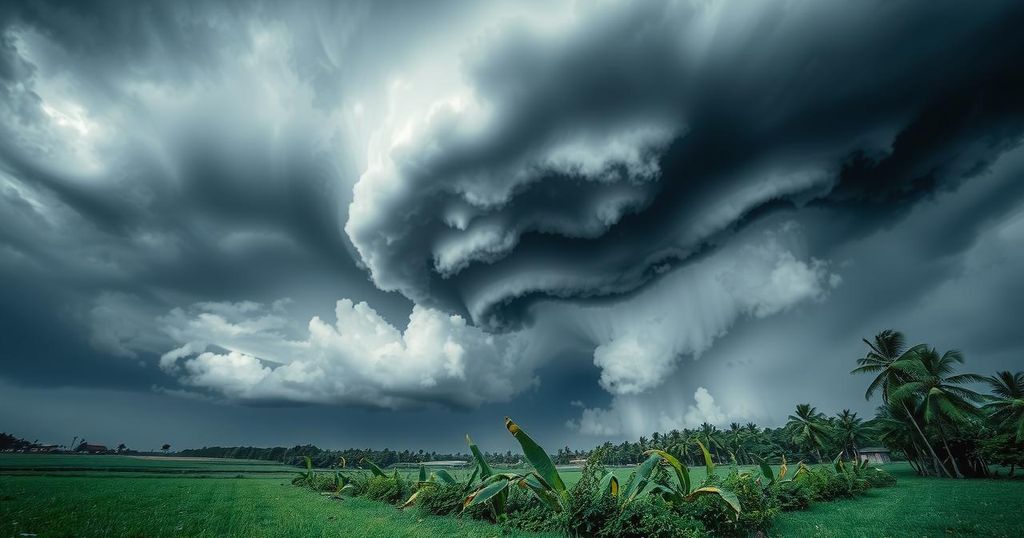Madagascar faces the aftermath of Cyclone Elvis that resulted in five deaths and injuries, while preparing for Cyclone Faida expected to make landfall on February 4. Elvis caused heavy rains and winds, overwhelming local communities. Faida may intensify and affect several regions. Authorities have been warned to prepare for the impacts of increasing storm activity due to climate change.
Madagascar is preparing for the impacts of Tropical Cyclone Faida, which is set to make landfall on February 4. This follows the recent devastation caused by Cyclone Elvis, which led to the deaths of at least five individuals in the Vohibato district due to lightning incidents. The storms have placed a significant toll on the region, as residents grapple with destruction and impending weather threats.
Cyclone Elvis originated over the Mozambique Channel on January 28, striking Madagascar’s southwestern coast on January 29. During its passage, it produced heavy rainfall and winds of up to 84 kilometers per hour. Notably, cities like Toliara and Taolagnaro reported significant precipitation, measuring 196 and 178 millimeters respectively over five days, according to The Guardian. The cyclone dissipated in the southern Indian Ocean over the weekend, leaving behind a challenging situation for local communities.
Tropical Cyclone Faida, which formed on January 23, made its presence felt in Mauritius and Réunion Island before heading towards northern Madagascar. The European Civil Protection and Humanitarian Aid Operations reported on February 3 that the cyclone has maximum winds of 65 km/h and may intensify. After its landfall, it is projected to impact several regions including Analamanga and Alaotra Mangoro, necessitating preparedness from the local authorities.
Prior to Cyclone Elvis, Madagascar and neighboring nations in southern Africa encountered severe weather as Tropical Cyclone Dikeledi struck, resulting in floods and landslides that claimed at least ten lives. In addition, the tortoise sanctuary experienced substantial losses due to flooding. Following the disasters, experts convened in Zambia to work on enhancing storm prediction methodologies in Southern Africa, amidst expectations of increasing storm activity due to climate change, as stated by the U.K. Met Office.
The article discusses the severe weather events impacting Madagascar, particularly focusing on Cyclone Elvis and the impending Cyclone Faida. The cyclones have resulted in loss of life, injury, and considerable rainfall that has devastated various regions. Additionally, the piece emphasizes rising concern regarding climate change and its correlation with more frequent and intense storms, underscoring the necessity of improved meteorological forecasting in Southern Africa. Historical impacts of earlier storms are also addressed, illustrating the compounded vulnerabilities faced by the region.
The ongoing situation in Madagascar highlights the severe consequences of recent cyclones, with lives lost and the population bracing for further weather challenges. The article underscores the urgent need for enhanced forecasting measures as climate change escalates storm frequency in the region. As authorities work to prepare for these events, the impacts on both human life and local ecosystems remain critical areas of concern.
Original Source: news.mongabay.com




